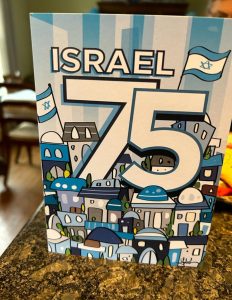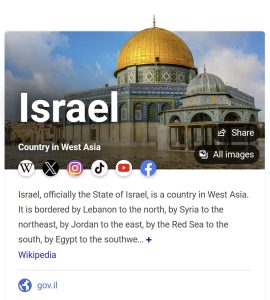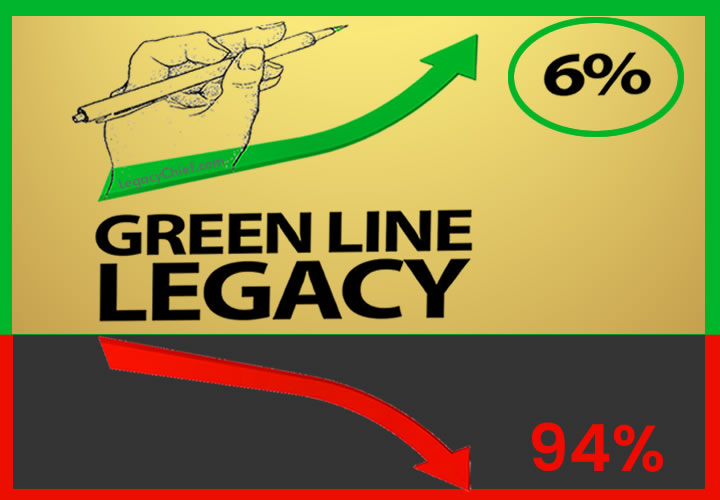Legacy Worthy Independence Israel Remembrance and Independence Days
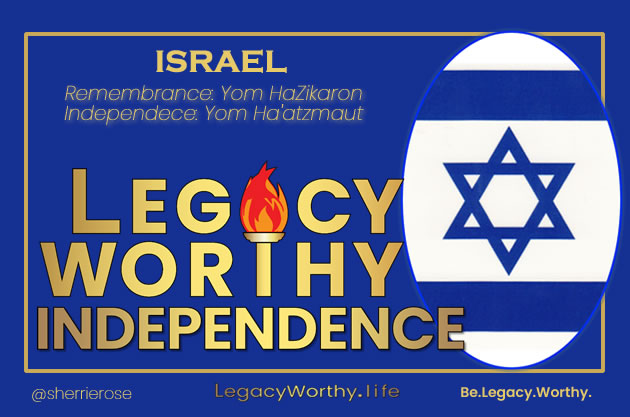
Legacy Worthy Independence: Israel Remembrance and Independence Days
Israel Independence Day Yom Ha’atzmaut and Israel Remembrance Day Yom HaZikaron
#1 Israel Independence Day
Israel’s Independence Day, Yom Ha’atzmaut, commemorates Israel’s declaration of independence; the day before, Yom HaZikaron is in remembrance of Israel’s fallen soldiers and victims of terror. Israel Independence Day is the national day of Israel commemorating the Israeli Declaration of Independence in 1948. It is a day of celebration for the people of Israel, marking the country’s independence and sovereignty as a Jewish state after centuries of exile and persecution.
The holiday has deep significance for Israelis and people around the world of Jewish faith, who view it as a testament to the resilience and perseverance of the Jewish people. It represents a triumph over adversity and a fulfillment of the Zionist dream of establishing a homeland for the Jewish people in their ancestral land. Independence Day is a time for reflection on the past, celebration of the present, and hope for the future, as Israelis come together to honor their country and its achievements.
#2 History Israel Independence Day
The establishment of the state of Israel was the culmination of a long struggle for the Jewish people, who had faced centuries of persecution and displacement from their ancestral homeland. In the late 19th century, a movement known as Zionism emerged, which sought to establish a Jewish homeland in Palestine. This movement gained momentum in the early 20th century, as Jews faced increasing violence and discrimination in Europe.
After World War I, Palestine came under British control, and the British government issued the Balfour Declaration in 1917, which expressed support for the establishment of a Jewish national home in Palestine. However, this support was not always consistent, and the British government also imposed restrictions on Jewish immigration to Palestine.
In the aftermath of World War II and the Holocaust, the Jewish community in British Mandate Palestine became increasingly restive, and Jewish underground organizations began to carry out attacks against British forces. The United Nations voted in 1947 to partition Palestine into separate Jewish and Arab states, and on May 14, 1948, David Ben-Gurion, the leader of the Jewish community in British Mandate Palestine, declared the establishment of the state of Israel.
Ben-Gurion became Israel’s first Prime Minister and played a key role in the establishment of the new state. Other prominent figures in the creation of Israel included Theodor Herzl, the founder of the Zionist movement, and Chaim Weizmann, who served as Israel’s first president. The establishment of Israel was a momentous event in Jewish history, representing the fulfillment of a centuries-old dream and the beginning of a new era for the Jewish people.
#3 National Symbols Israel Independence Day
Israel has several national symbols that are closely associated with Independence Day. These symbols represent the country’s history, values, and aspirations, and they are an important part of Israeli identity.
One of the most prominent symbols of Israel is the Israeli flag, which features two blue stripes on a white background with the Star of David in the center. The blue stripes represent the tallit, or Jewish prayer shawl, while the Star of David is a symbol of Jewish identity and tradition. The flag was first raised on May 14, 1948, at the official ceremony marking the establishment of the state of Israel, and it has been an important symbol of Israeli pride and national unity ever since.
Another important symbol of Israel is the national anthem, “Hatikvah,” which means “The Hope” in Hebrew. The lyrics of the anthem express the Jewish people’s longing for their homeland and their hope for a better future. “Hatikvah” was written in the late 19th century by Naphtali Herz Imber, a poet and writer who was living in Israel at the time, and it was adopted as the national anthem in 1948.
In addition to the flag and the national anthem, there are several other national symbols associated with Israel, such as the menorah, which is a seven-branched candelabrum that represents the Jewish Temple, and the shofar, which is a ram’s horn that is used in Jewish religious ceremonies. These symbols are often used in public ceremonies and celebrations, and they are an important part of Israeli culture and heritage.
Note: The United Nations charter was established on October 24, 1945, with the aim of promoting international cooperation across countries and maintaining peace and security across the world.
The UN has played a significant role in the history of Israel, particularly in the establishment of the state of Israel. In 1947, the UN General Assembly adopted Resolution 181, which recommended the partition of Palestine into two states, one Jewish and one Arab. The resolution was accepted by the Jewish leadership but rejected by the Arab leadership, leading to the 1948 Arab-Israeli War. Israel declared its independence on May 14, 1948, and was recognized by the UN as a state on May 11, 1949 (1).
The modern state of Israel is 75 years young.
(see also 75 years here )
#4 Celebrations for Israel Independence Day
Israel Independence Day is celebrated throughout Israel with a variety of festive events and activities. The holiday is marked by parades, fireworks displays, and public gatherings, as well as cultural and religious events that reflect the diverse traditions of Israeli society.
One of the most popular ways to celebrate Independence Day in Israel is by holding a traditional barbecue, or “Mangal.” This involves grilling meat and vegetables on an open flame, often in parks or other public spaces. The Mangal is a symbol of Israeli culture and is a way for families and friends to come together and enjoy a festive meal.
Another important part of Independence Day celebrations is the singing of patriotic songs, such as “Hatikvah” and “Am Yisrael Chai,” which express the pride and unity of the Israeli people. In addition, there are often cultural events, such as concerts and dance performances, that showcase the rich diversity of Israeli music and art.
Public gatherings are also an important part of Independence Day celebrations. Many cities and towns hold parades, in which schoolchildren, marching bands, and other community groups participate. The largest parade takes place in Jerusalem, and it is attended by thousands of people from all over the country.
Fireworks displays are another popular way to celebrate Independence Day, with colorful pyrotechnics lighting up the sky in cities and towns throughout Israel. In recent years, there has also been a trend toward holding more eco-friendly celebrations, with events focusing on sustainable practices and environmentally-friendly activities.
Independence Day is a time for Israelis to come together and celebrate their country’s achievements, history, and cultural heritage. It is a day of joy and pride, marked by festive events and a sense of unity and community spirit.
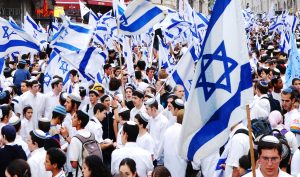
#5 Israel Independence Day and Proximity to Yom HaZikaron
Israel Independence Day is closely connected to Yom HaZikaron, Israel’s Memorial or Remembrance Day, which takes place the day before Independence Day. Yom HaZikaron is a day of mourning and reflection, dedicated to the memory of fallen soldiers and victims of terrorism who have died in the service of Israel.
In the aftermath of World War II and the Holocaust, the Jewish community sought to establish a homeland in Palestine. Israel declared its independence on May 14, 1948, and Yom Ha’atzmaut celebrates this momentous event. However, the struggle for independence was not without its challenges, and Yom HaZikaron serves as a reminder of the sacrifices made by soldiers and civilians alike in the pursuit of a Jewish state. Together, these two holidays offer a poignant reflection on Israel’s journey to independence and the ongoing efforts to build and protect the country.
On Yom HaZikaron, Israel observes a national day of remembrance with a variety of ceremonies and activities. At 8:00 p.m. on the evening before Yom HaZikaron, a siren sounds throughout the country, bringing the entire nation to a halt for two minutes of silence. During this time, people stand in silence to pay their respects to the fallen soldiers and victims of terrorism.
Throughout the day, there are ceremonies and events held in cemeteries and other locations, where wreaths and flowers are laid on the graves of the fallen soldiers. Many families visit the graves of their loved ones to pay their respects and honor their memory.
In addition to the ceremonies, there are also programs and events held in schools and community centers, where people share stories and memories of loved ones who have died in service to the country. There are also musical performances, poetry readings, and other cultural events that serve as a tribute to the fallen soldiers and victims of terrorism.
The connection between Yom HaZikaron and Independence Day is significant, as it highlights the sacrifice and dedication of those who have given their lives for the establishment and defense of the State of Israel. While Independence Day is a day of celebration, it is also a time to remember and honor those who have made the ultimate sacrifice for their country.
Here are other remembrance or memorial days around the world, and there are many more in different countries and regions. The dates and names of these days may vary depending on local customs and traditions.
Various Countries – International Holocaust Remembrance Day (January 27)
Philippines – Araw ng Kagitingan or National Day of Remembrance (April 9)
Various Countries – Armenian Genocide Remembrance Day (April 24)
Australia and New Zealand – ANZAC Day (April 25) See more here on ANZAC
Netherlands – Dodenherdenking or Remembrance of the Dead (May 4)
Netherlands – Bevrijdingsdag or Liberation Day (May 5)
Russia and former Soviet republics – Victory Day (May 9)
Palestinians and others – Nakba Day (May 15)
United States – Memorial Day (last Monday in May)
Various Countries – D-Day Anniversary (June 6)
United Kingdom, Canada, and other Commonwealth countries – Remembrance Day (November 11)
United States – Veterans Day (November 11)
Scotland – St. Andrew’s Day (November 30)
United States – National Pearl Harbor Remembrance Day (December 7)
#6 Significance of Israel Independence Day
Israel Independence Day holds a great deal of significance for the Israeli people and Jewish people around the world, serving as a reminder of the country’s struggles and triumphs. It represents the culmination of a long and difficult journey towards self-determination, and celebrates the establishment of the State of Israel as a homeland for the Jewish people.
The holiday is a time for Israelis to reflect on the many challenges that they have faced throughout their history, including wars, terrorism, and political instability. It is also a time to celebrate the many achievements of the country, including its vibrant democracy, thriving economy, and cultural diversity.
Despite the many challenges that Israel continues to face today, Independence Day inspires hope for the future. It serves as a reminder of the strength and resilience of the Israeli people, and their ability to overcome adversity in the face of seemingly insurmountable odds.
One of the most significant challenges facing Israel today is the ongoing conflict with the Palestinians and other neighboring countries. The conflict has resulted in a great deal of violence and bloodshed, and has posed significant challenges to the country’s security and stability.
However, Independence Day serves as a reminder of the importance of pursuing peace and stability in the region. It is a time to reflect on the many efforts that have been made towards reconciliation and peaceful coexistence, and to renew the commitment to finding a lasting solution to the conflict.
Israel Independence Day is a time of great significance for the Israeli people, and serves as a reminder of the country’s struggles and triumphs. It inspires hope for the future, and serves as a reminder of the importance of pursuing peace and stability in the region.
#7 Future Outlook Israel Independence Day
Israel Independence Day plays an important role in shaping the future of Israel. It is a time for Israelis to come together and reflect on their shared history, and to renew their commitment to building a strong and vibrant future for the country.
One of the most important aspects of Independence Day is the way that it brings together Israelis of all backgrounds and beliefs. It serves as a reminder of the common purpose that unites the country, and inspires a sense of unity and shared identity that is essential for building a strong and cohesive society.
Looking to the future, there are many challenges that Israel will need to confront in order to continue to thrive and grow as a nation. These challenges include issues related to security, social inequality, and political instability.
However, Independence Day serves as a reminder of the many achievements that the country has already made, and the potential that exists for even greater success in the future. It inspires hope and optimism for the future, and provides a sense of purpose and direction for the country as a whole.
In conclusion, Israel Independence Day is a national holiday of great significance for the Israeli people. It commemorates the establishment of the State of Israel as a homeland for the Jewish people, and serves as a reminder of the country’s struggles and triumphs.
The holiday is an important time for Israelis to come together and celebrate their shared identity and common purpose. It inspires hope for the future, and provides a sense of direction and purpose for the country as it faces the many challenges that lie ahead.
Ultimately, Independence Day is a testament to the strength and resilience of the Israeli people, and their commitment to building a strong, prosperous, and peaceful future for themselves and for generations to come.
Internet Recognition of Israel Independence Day

#8 Learn more about the Israeli Declaration of Independence in 1948 and Yom Hazikaron
(with links to follow)
The website of the Israeli Ministry of Foreign Affairs provides a detailed history of the events leading up to the establishment of the State of Israel, as well as information on the country’s national holidays and observances, including Yom HaZikaron and Independence Day.
Israeli Ministry of Foreign Affairs: https://mfa.gov.il/
The Yad Vashem website provides an extensive collection of resources related to the Holocaust and the establishment of the State of Israel, including primary source documents, photographs, and personal accounts.
Yad Vashem: https://www.yadvashem.org/
The Jewish Virtual Library is an online encyclopedia of Jewish history and culture, with a section devoted to the history of Israel, including information on the Declaration of Independence and Yom HaZikaron.
Jewish Virtual Library: https://www.jewishvirtuallibrary.org/
The Times of Israel is an English-language news website based in Israel, which provides up-to-date coverage of current events in the country, including national holidays and observances.
Times of Israel: https://www.timesofisrael.com/
The Israel Defense Forces website provides information on the military history of Israel, including details about Yom HaZikaron and the sacrifices made by the country’s soldiers in defense of the nation.
Israel Defense Forces: Hebrew site: https://www.idf.il/ English site: https://www.idf.il/en/
What is Yom HaZikaron and how does Israel observe it?
https://www.idf.il/en/mini-sites/our-soldiers/what-is-yom-hazikaron-and-how-does-israel-observe-it/
75th Israel Independence Day April 26, 2023
#belegacyworthy #legacyworthy

